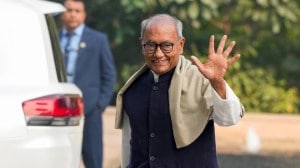Click here to follow Screen Digital on YouTube and stay updated with the latest from the world of cinema.
Through the looking glass
Film-maker Ashoke Pandit talks about the need for transparency that will help in rooting out corruption while certifying Bollywood films
The CEO of the Central Board of Film Certification (Rakesh Kumar) allegedly demanded a bribe from a film producer through an agent. But its been so many years now that middlemen have always been obtaining censor certificates for producers. Films in India cannot be screened in public without a certificate from the CBFC stating whether they are appropriate for viewership for general public or should be restricted to viewers of a certain age. To apply for the certificate, producers have to submit their film, along with the script, title credits and other documents to the Board. Those associated with the film industry have since long been pointing out that the panel members should be selected from the fraternity, so that those appointed are interested in films and also possess a strong sense of editing.
A bureaucrat, IAS or a railway officer cannot fit into the shoes of the Chief of Censor Board. Moreover, it is difficult to find a bureaucrat who is not corrupt. A representative from the film industry would know the nuances of film-making, how post production is done and will be able to provide the right insights. However the COO in question, who held the post, blasted film-makers and wanted to ban the kind of films that are being made. Hence, he had an arrogant attitude right from the beginning when he took over as the CEO of CBFC. He had formed a cartel of agents who would take money from producers, citing that this would only facilitate the process of film-certification. In an ideal situation, the production managers and officials of the Censor Board should be the only ones who should be involved in the film-certification process. But these agents have actually become middlemen between the Censor Board and the producer. The agent becomes the front man, since the Censor Board officials cannot directly have monetary transactions with the production manager.
In the present scenario, if a producer does not toe-the-line, his film gets delayed and he becomes a harried man, running from pillar to post in order to get his film certified. The chief in question, understood the weakness of the producers and used it to his advantage. Citing a personal experience, my documentary titled Village of Widows based in Kashmir was sent to the Revising Committee, after it was initially rejected. The five government officials who flew from Delhi to view the twenty-five minute film demanded special treatment in return of the three cuts that they imposed. But I refused outright.
The problem however, doesn’t end in merely selecting a celebrity to represent the film industry. Those selected should be accessible and should have worked at the ground level. They should be actively involved and provide solutions to problems. The several associations in the industry should unanimously nominate the person whom they think will do justice to his position. The process should be democratic and fair. Another factor to consider here is that none of the parliamentarians who have been part of the entertainment industry take up these issues in the government. They can be the harbingers of change in Parliament, but they do not take the right initiative, and most of the time are given irrelevant portfolios. We are facing a problem because the entertainment industry is not taken seriously. The time has come, for the government to start paying attention to our needs.
- 01
- 02
- 03
- 04
- 05


































